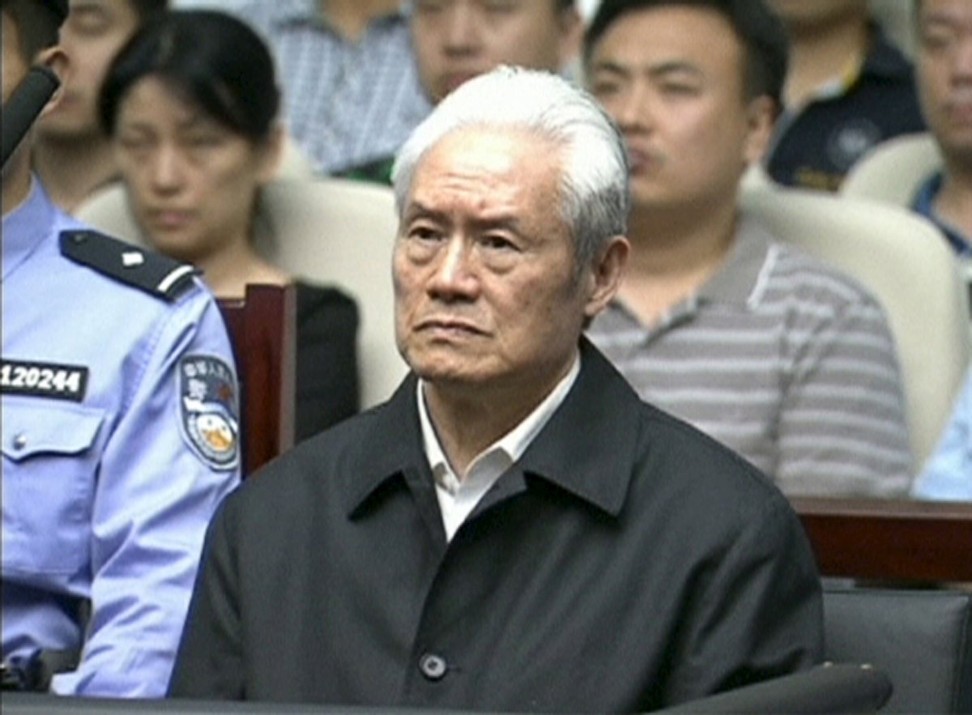
China’s domestic security commission gets renewed powers under restructuring plan
Central Politics and Law Commission had been in the shadows since being downgraded in wake of Zhou Yongkang scandal
The top domestic security commission of China’s Communist Party looks set to regain its prominence under Beijing’s latest restructuring plan for state and party agencies.
The Central Politics and Law Commission was once an extremely powerful body, and until 2012 was run by then security tsar Zhou Yongkang. But after his retirement, and subsequent expulsion from the party and imprisonment on corruption charges, the organisation was downgraded.
Now that is all set to change, as three coordination groups, with responsibility for the maintenance of law and order, social stability and the Falun Gong crackdown, will be merged into it, according to the plan released by Xinhua on Wednesday.
The police force, prosecutor’s offices and courts also report to the commission.
The changes are intended to strengthen and improve the efficiency of the party’s leadership and coordination of its domestic security work.
Under the plan, which was approved by the party’s 200-strong Central Committee in late February, the commission will be responsible for coordinating inter-agency work on upholding law and order, consolidating information and intelligence related to domestic security, coordinating the handling of major incidents, analysing and preventing social stability risks, and formulating an anti-cult policy.
The Ministry of Public Security will, however, retain responsibility for cracking down on illegal cults, as well as the collection and analysis of relevant intelligence, according to the plan.
The commission is headed by Guo Shengkun, a member of both the Politburo and the party’s Central Committee Secretariat, the body that handles the day to day operations of the Politburo.
Local commentator Zhang Lifan said the reorganisation was evidence of Beijing’s fears for its political security.
“The move is aimed at improving efficiency to maintain political stability, and moving China closer to becoming a police state,” he said.
One of the three groups to be absorbed into the commission is the anti-cult leading group, or 610 Office, which was set up in 1999 to combat what Beijing saw as the threat from Falun Gong, a spiritual group the government regards as a cult.
The second body to lose its independent status is the central stability preservation leading group, which was established in 1998 in response to the Asian Financial Crisis and the damage it caused to China’s economy.
The third is the committee on social management and comprehensive governance, which was founded in 1991 with a remit to oversee law and order.
Additional reporting by Jun Mai


